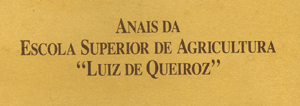The effects of NPK on the yield of bean was studied by means of a 3³ factorial experiment In an incomplete block design according to Yates confounded W model. The experiment was conducted in the same site for two subsequent years. Rates of nutrient utilized were as follows: nitrogen (0, 20 and 40 kg/ha of N) , phosphorus (0, 50 and 100 kg/ha of P(2)0(5)) and potassium (0, 20 and 40 kg/ha of K(2)0) applied as urea, triple superphosphate and potassium chloride, respectively. All plots received an uniform application of 60 kg/ha of S as calcium sulfate, 4 kg/ha of Zn as zinc sulfate, 4 kg/ /ha of Cu as copper sulfate, 1 kg/ha of B as borax and 0,2 kg/ha of Mo as sodium molibdate. A number of extratreatments was planted with the main field trial to study the effect of sulfur and micronutrients. The same rates indicated above were used. Treatments were as follows: check, complete minus S, complete minus micro and complete (NPK S micro). These treatments were analysed as a randomized block experiment. The results obtained led to the following conclusions: a) yield of common beans was significantly affected by the application of phosphorus in the two years the field experiment was planted; b) no significant effects on the yield of beans were detected for nitrogen, potassium, sulfur and the composite mixture of micronutrients.
